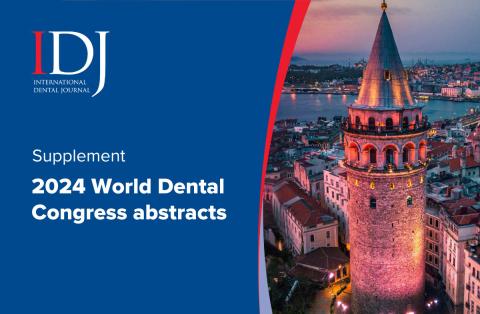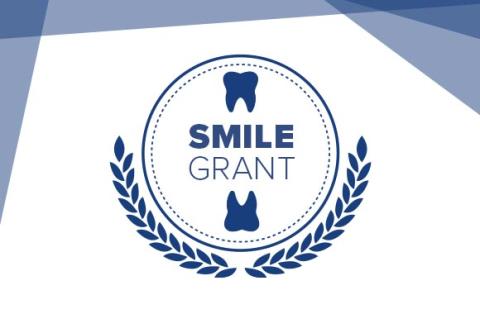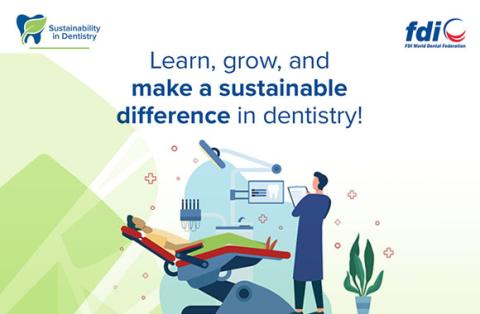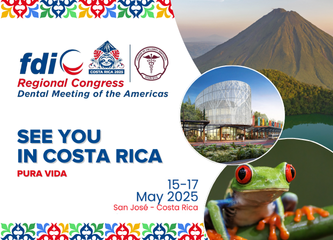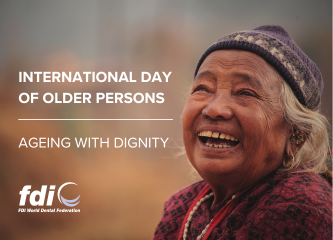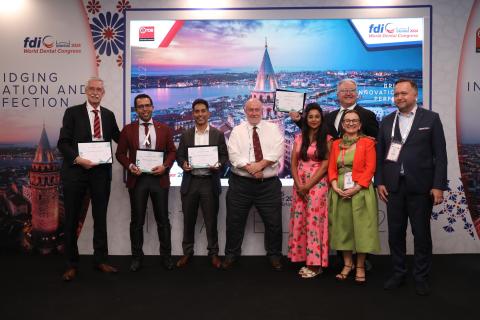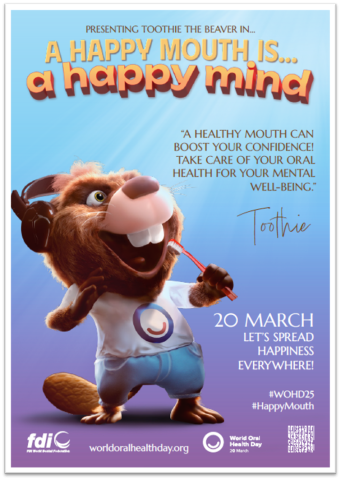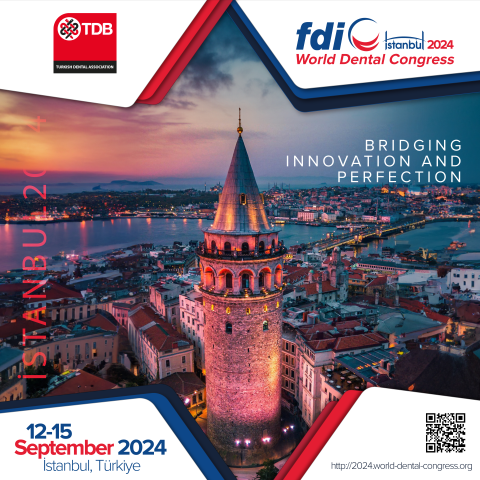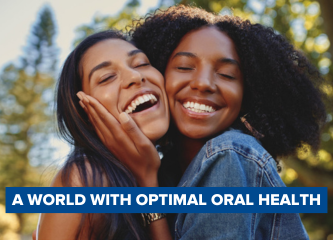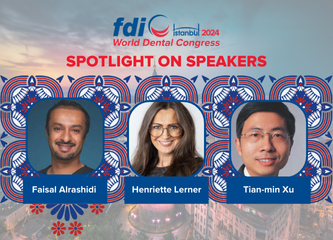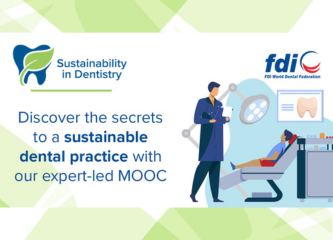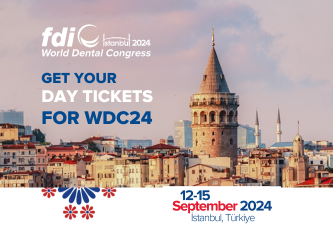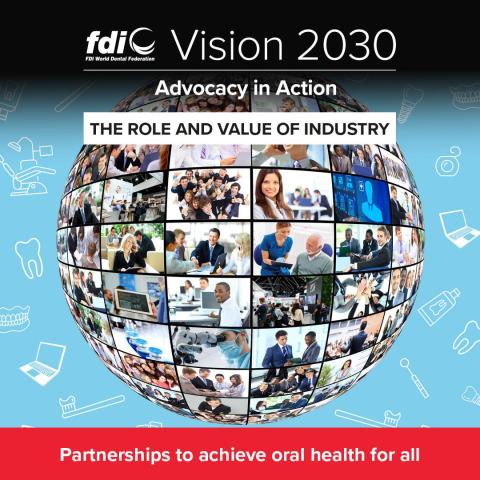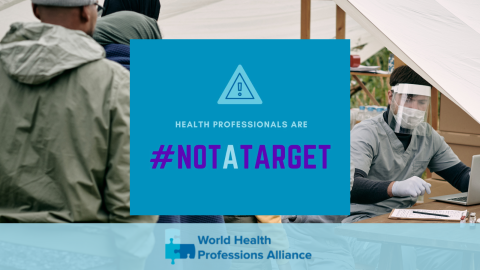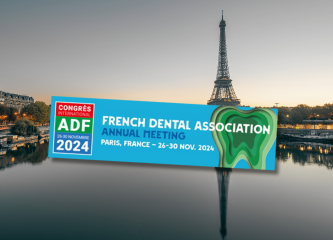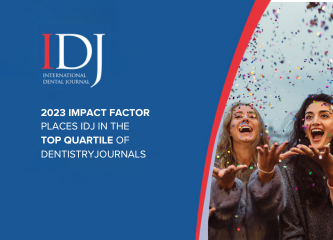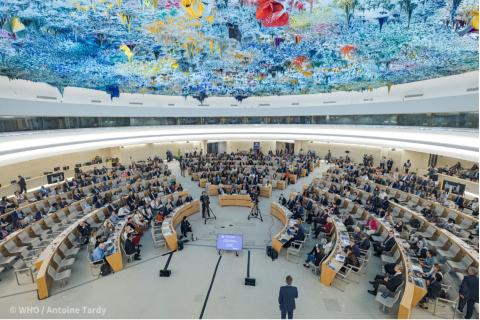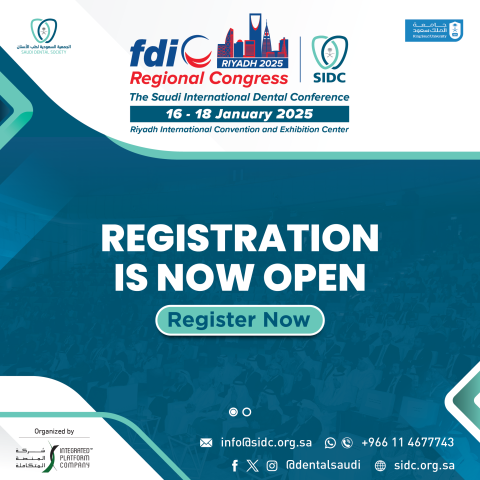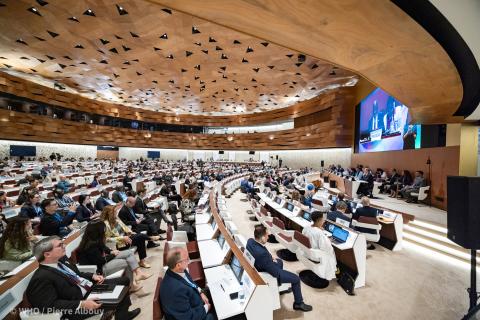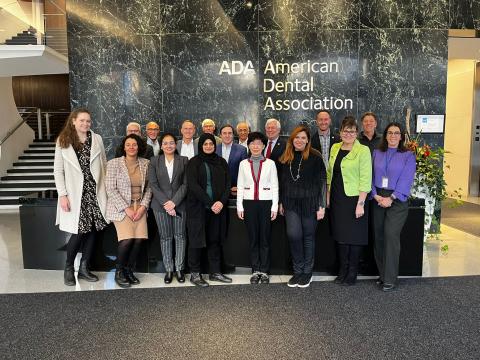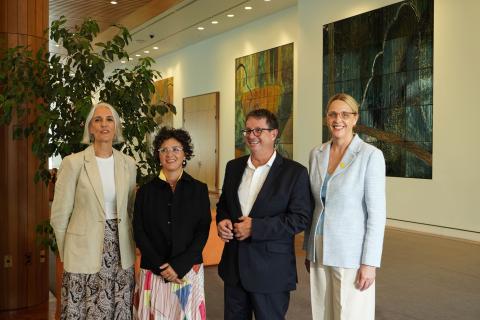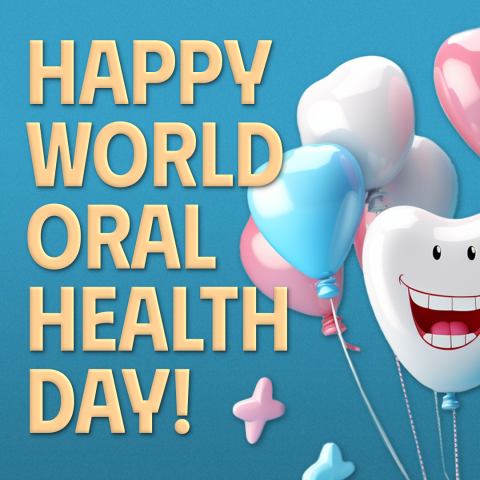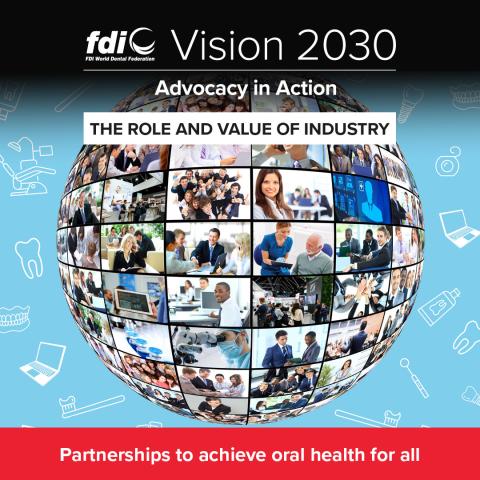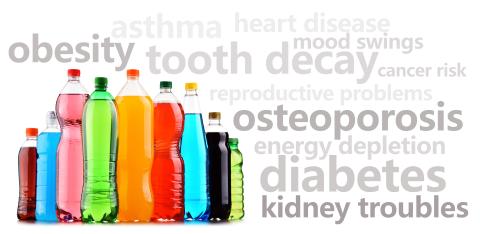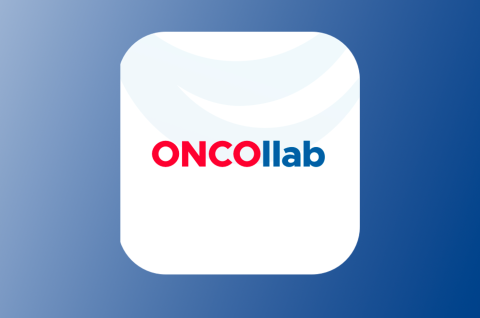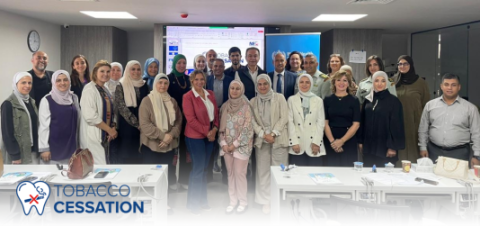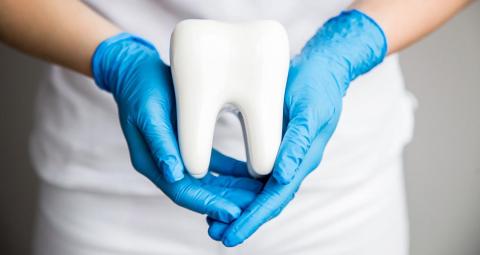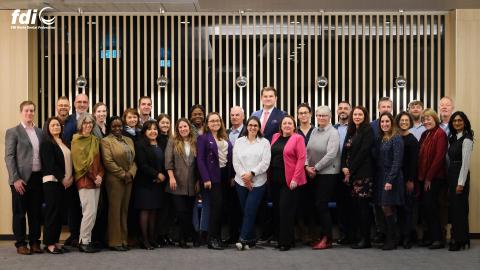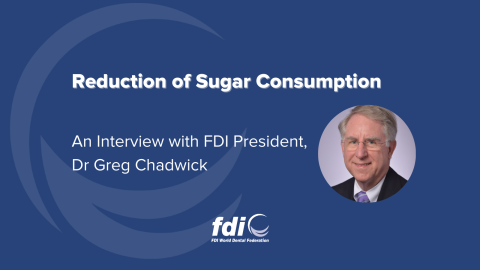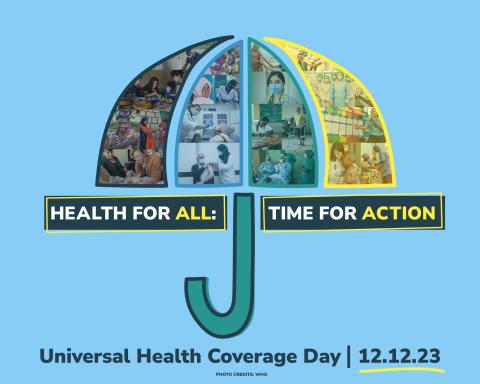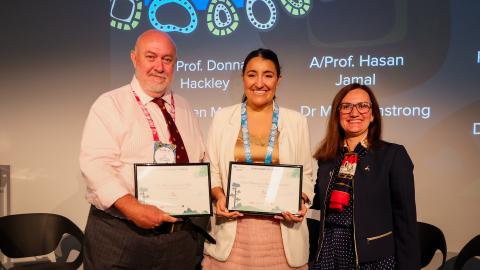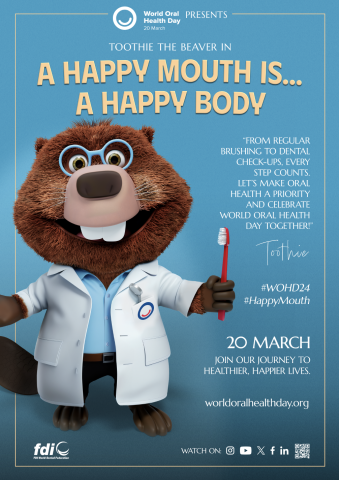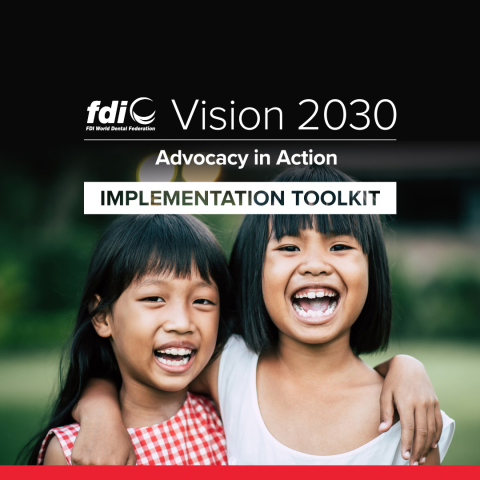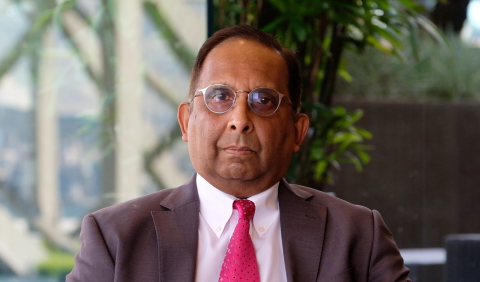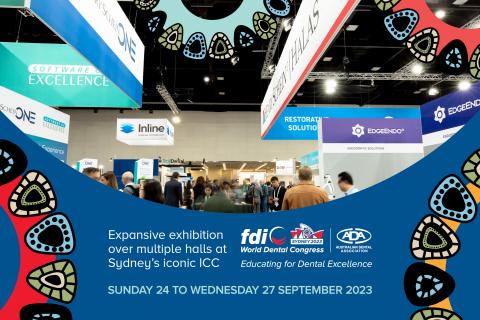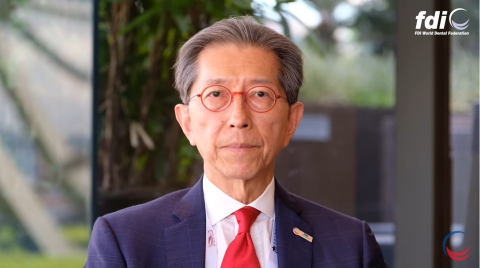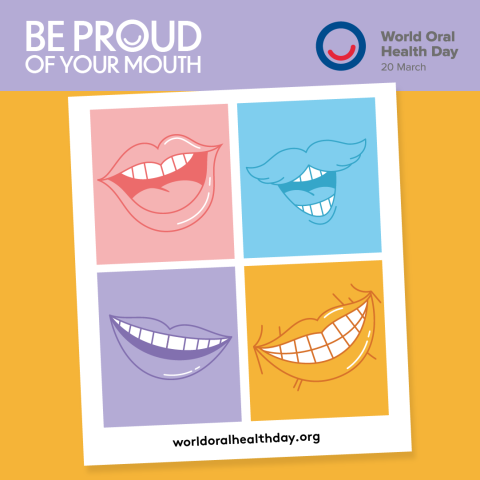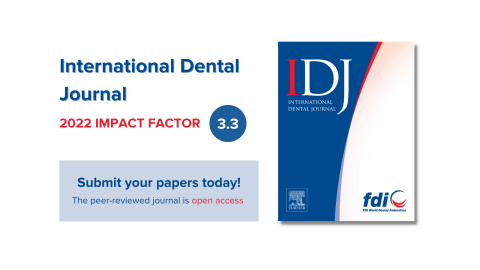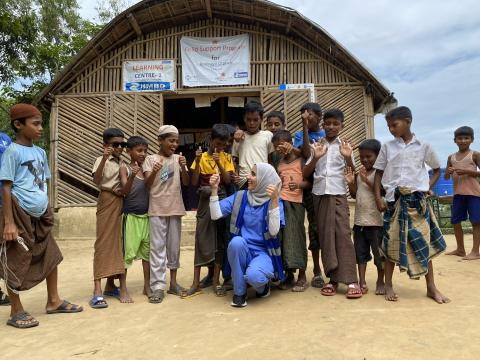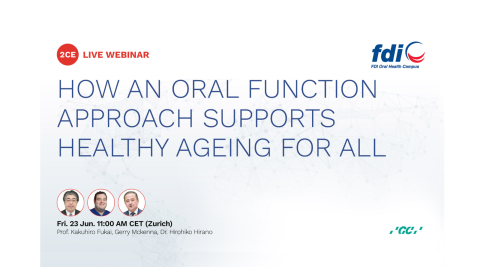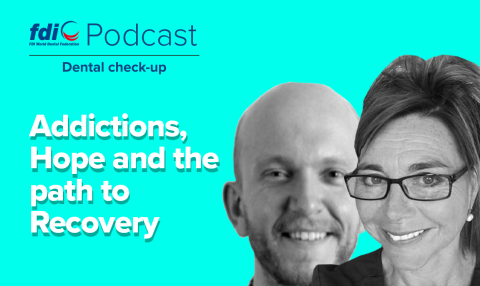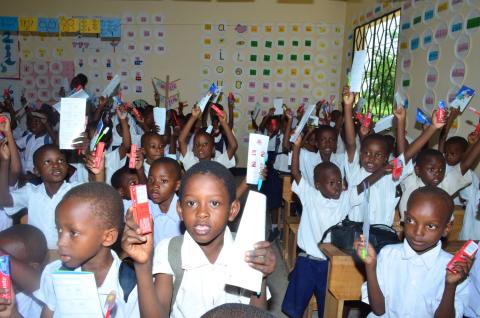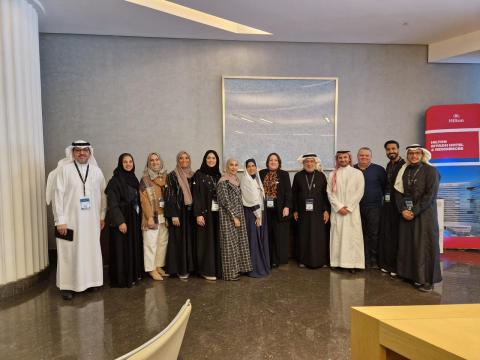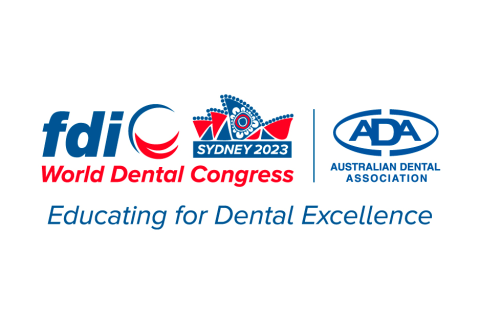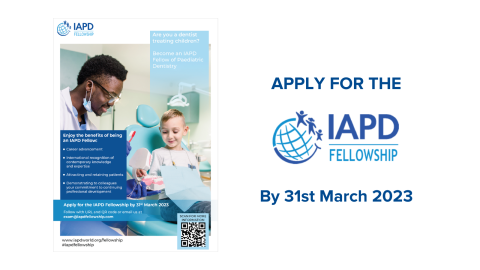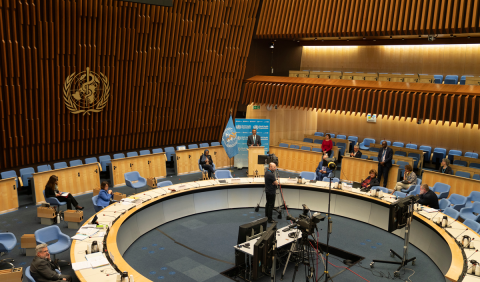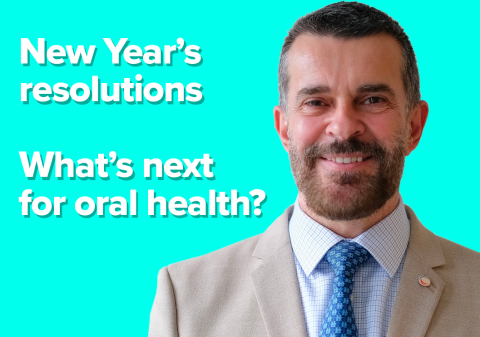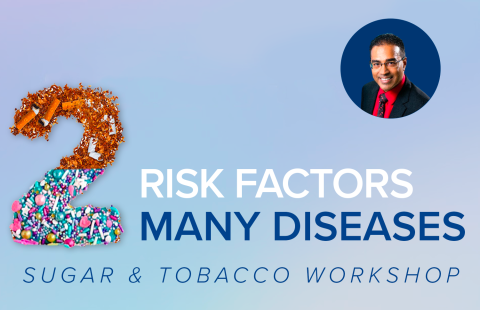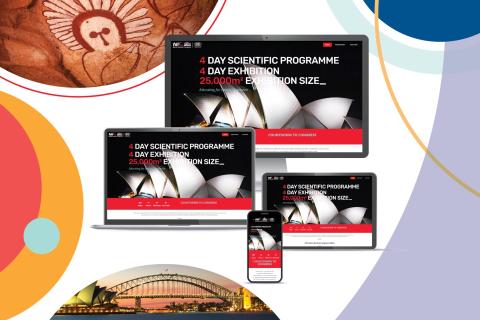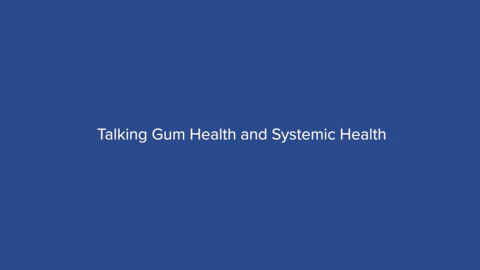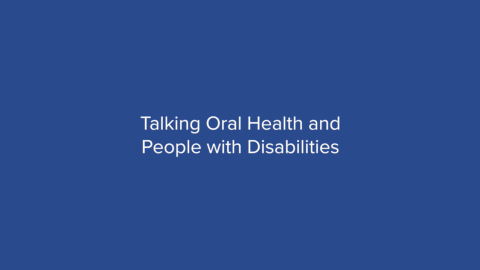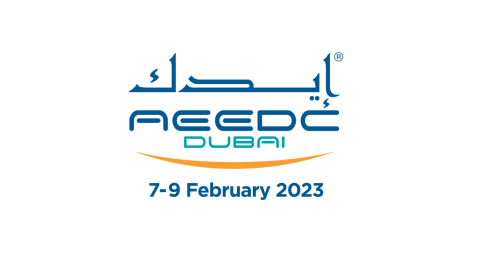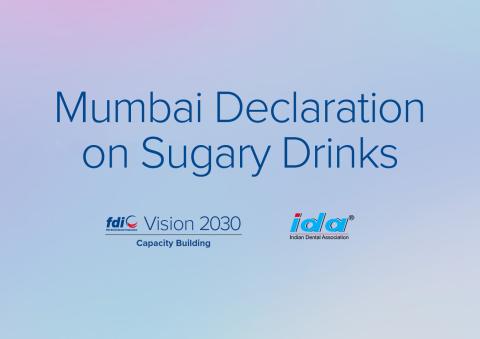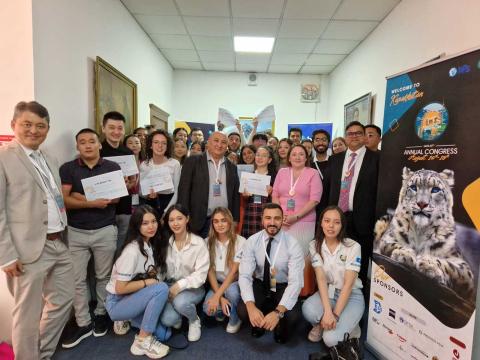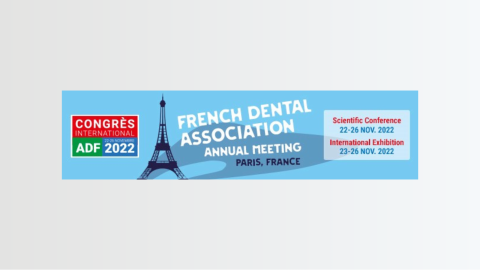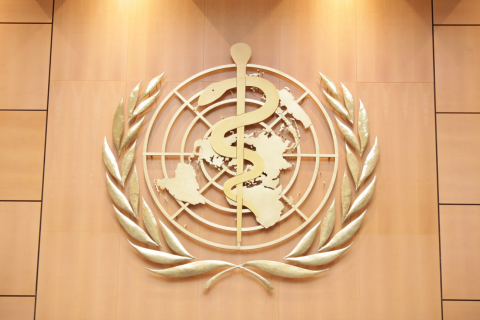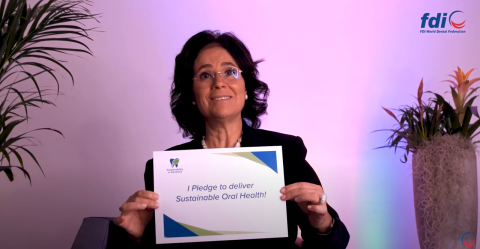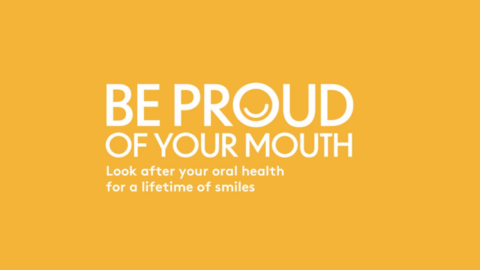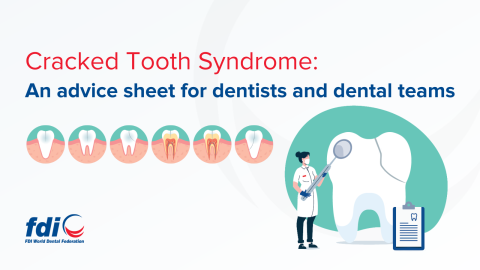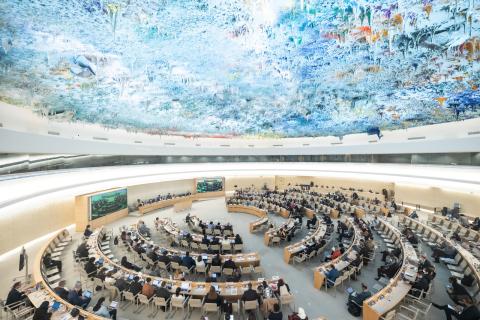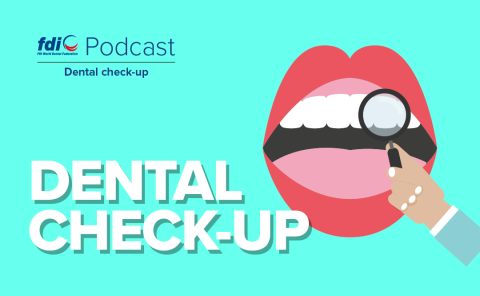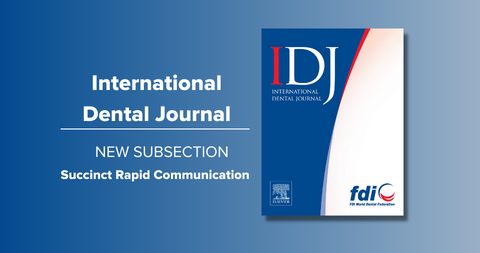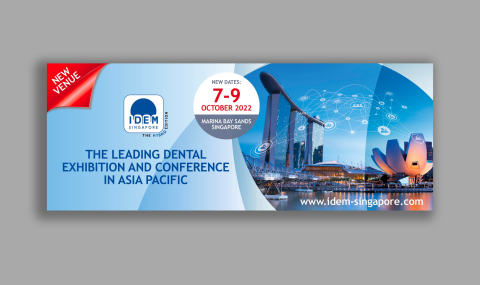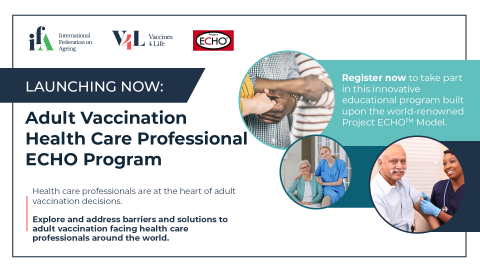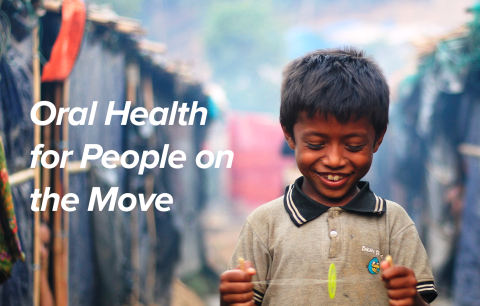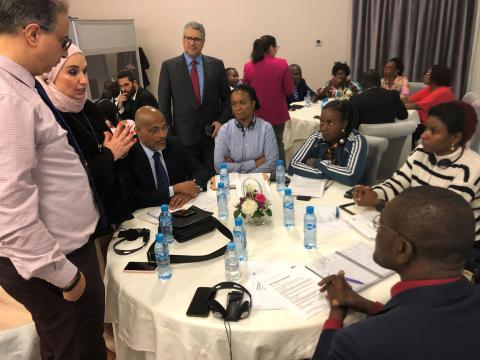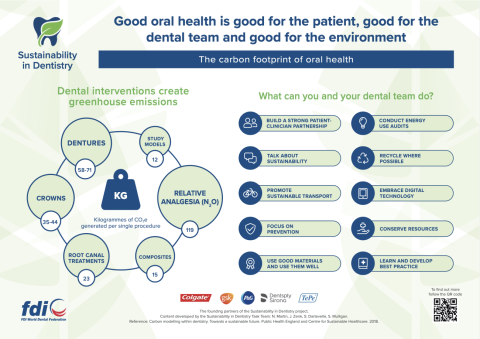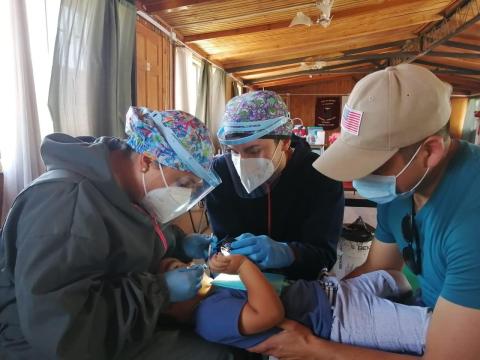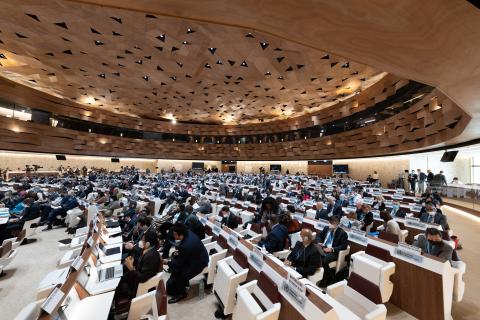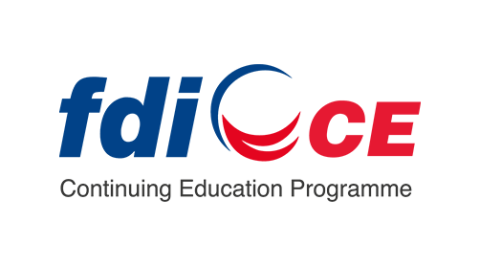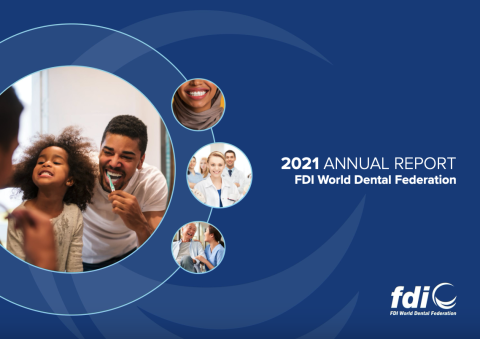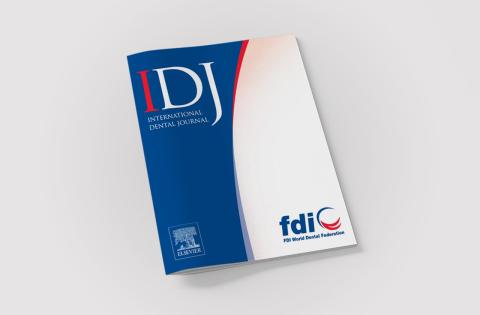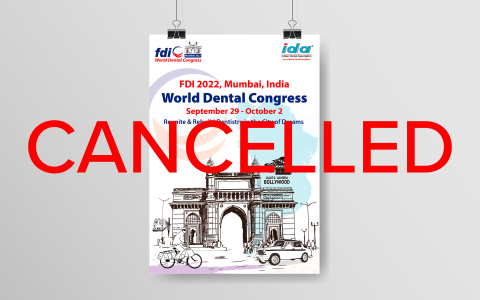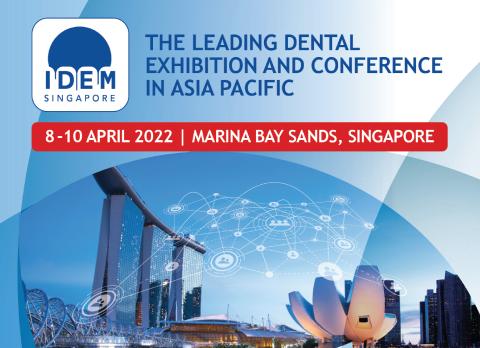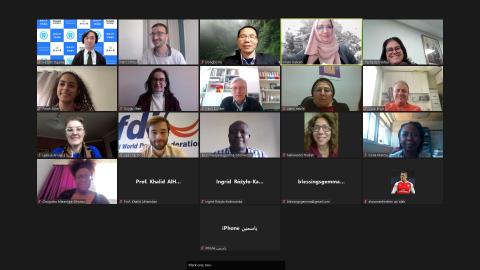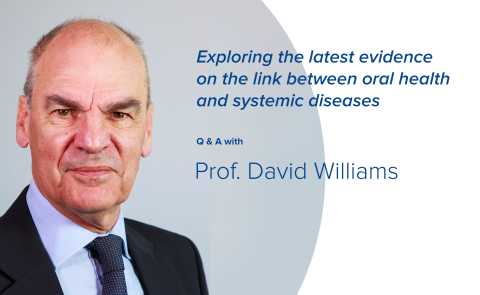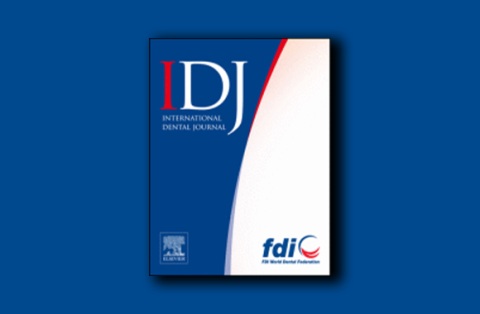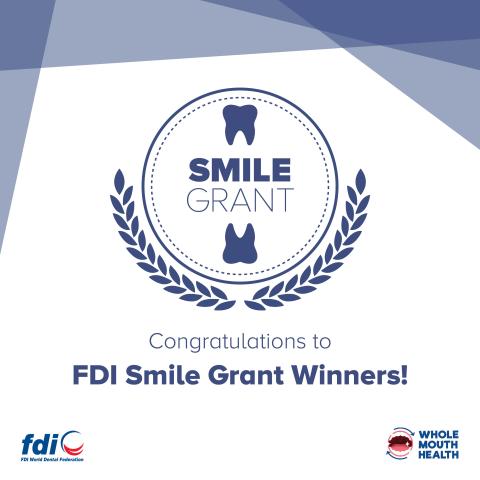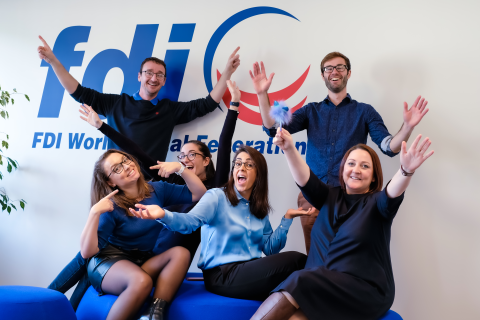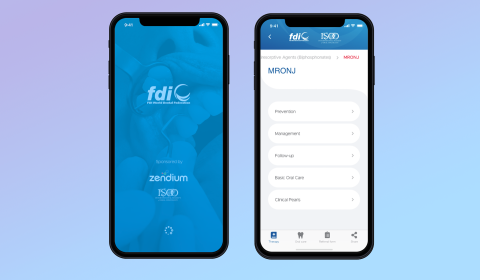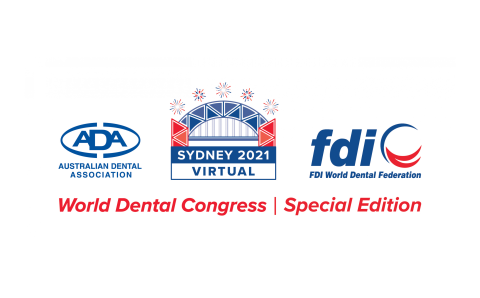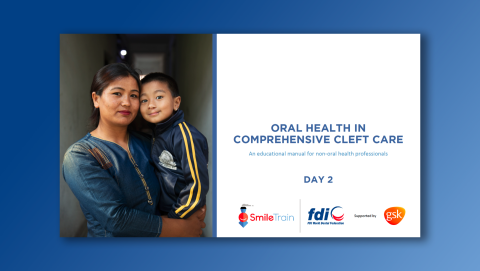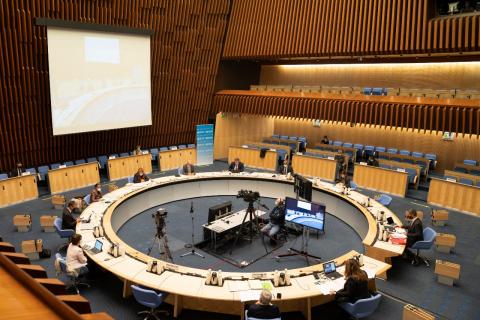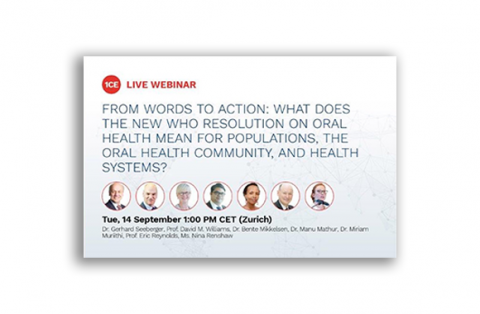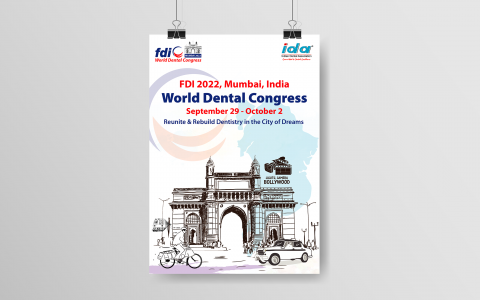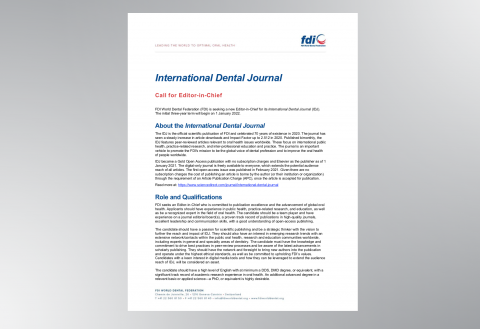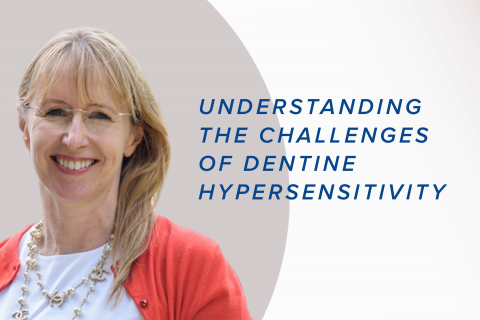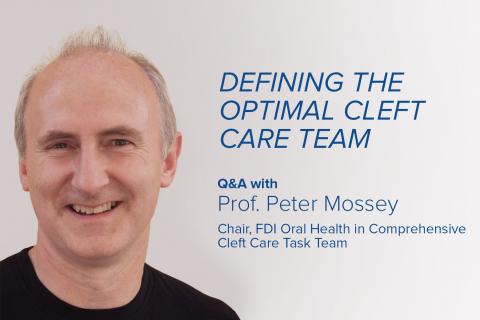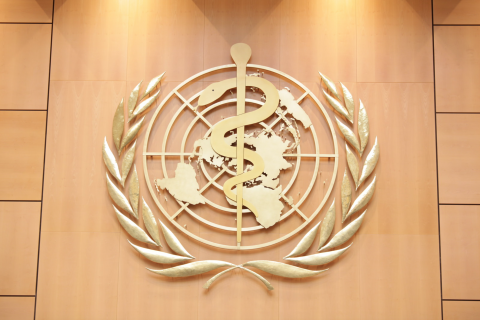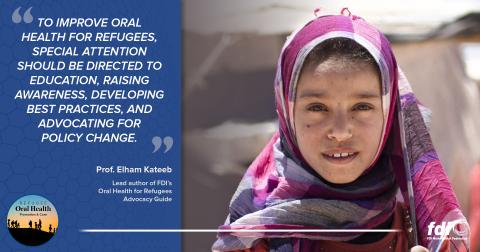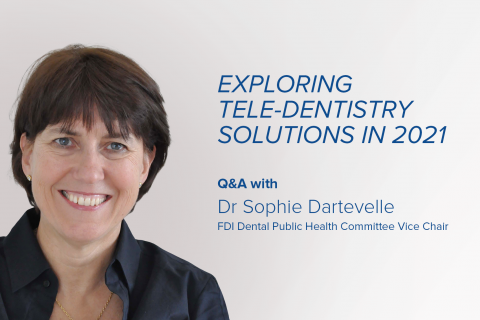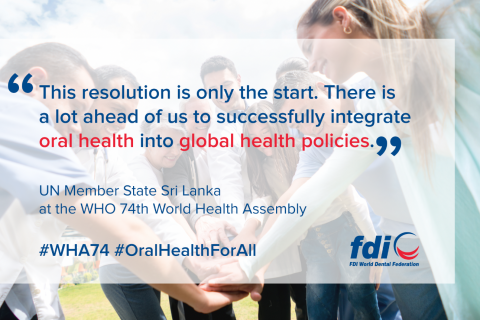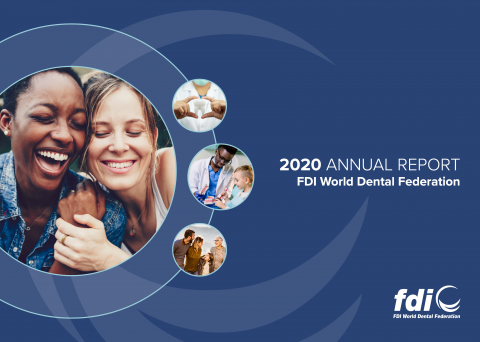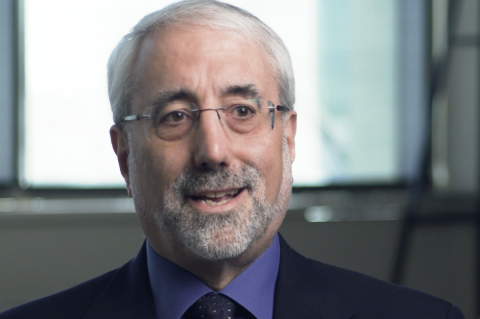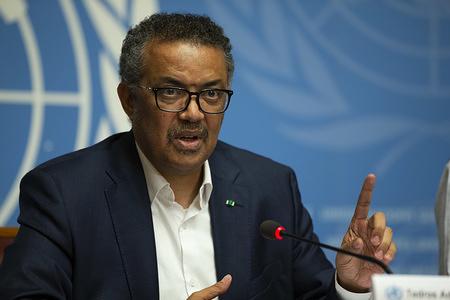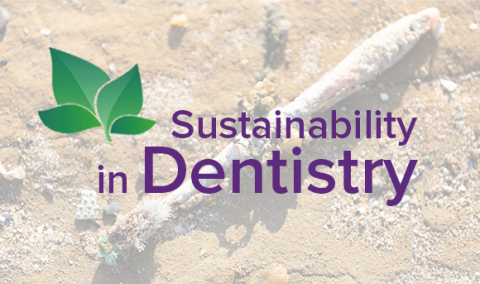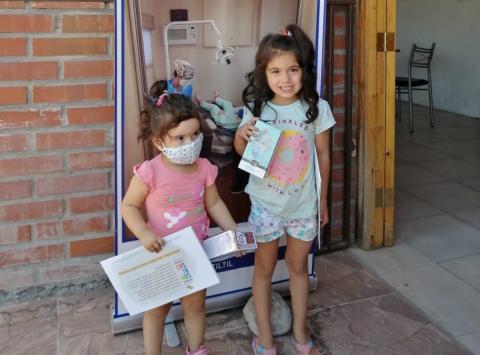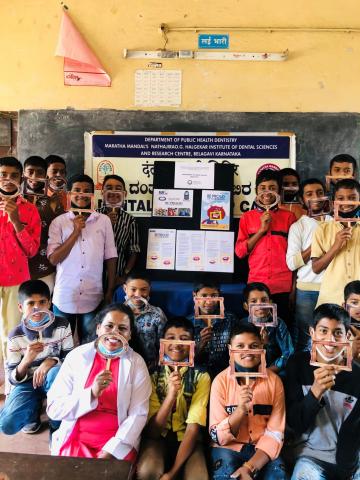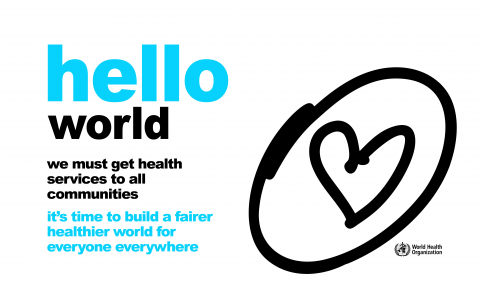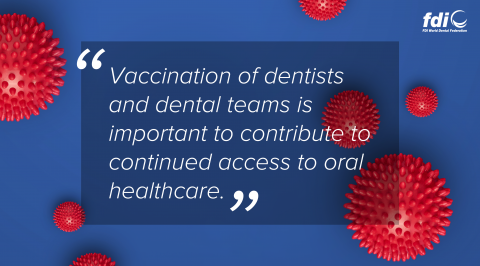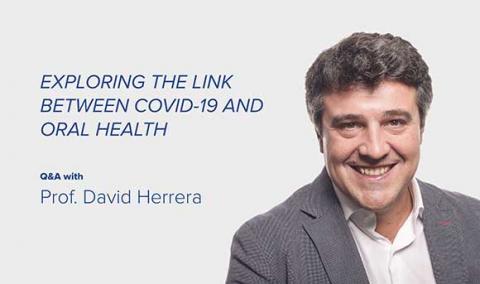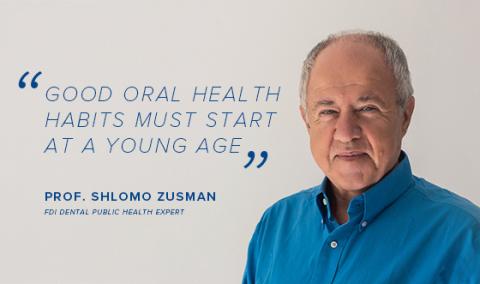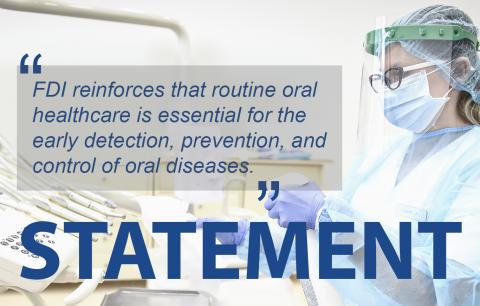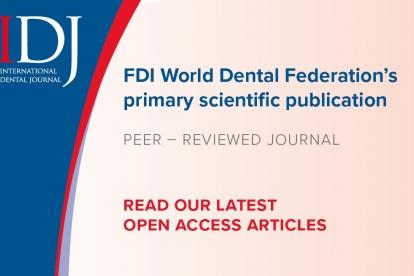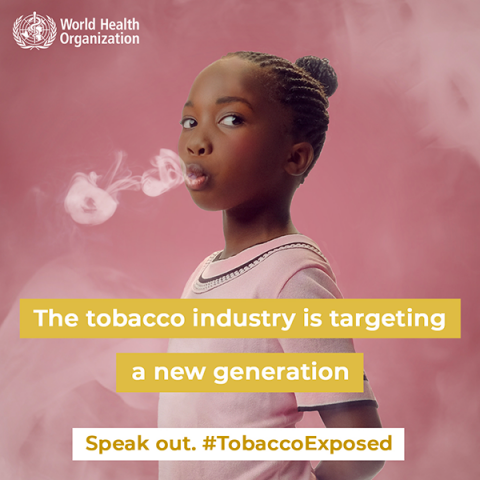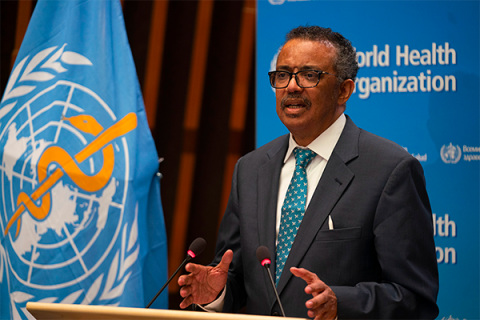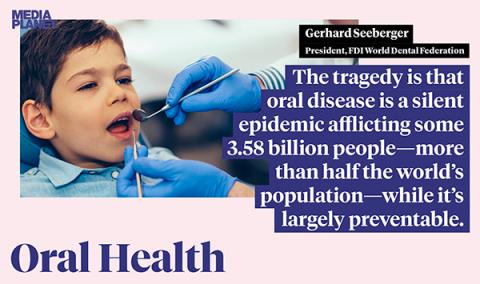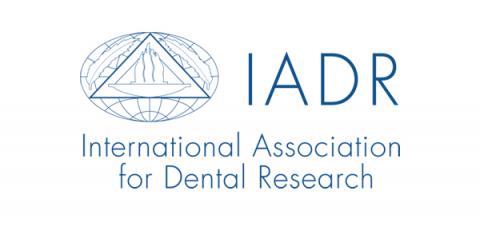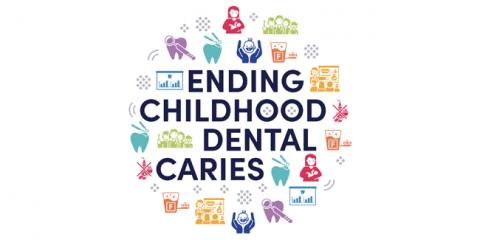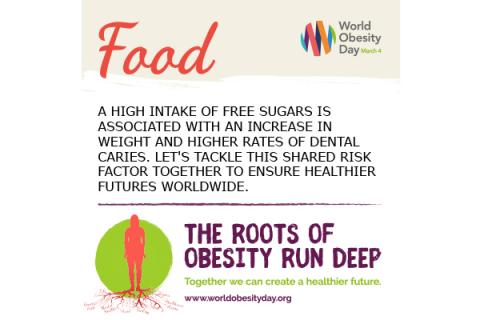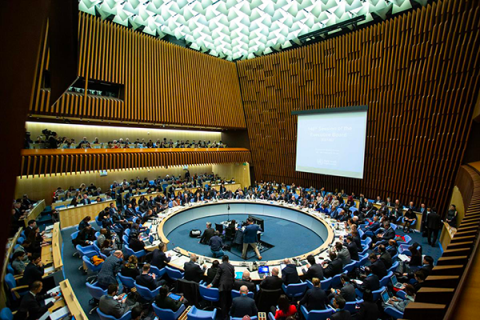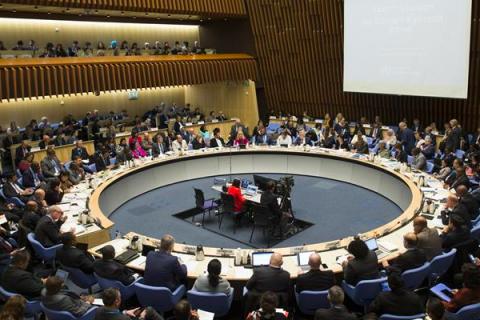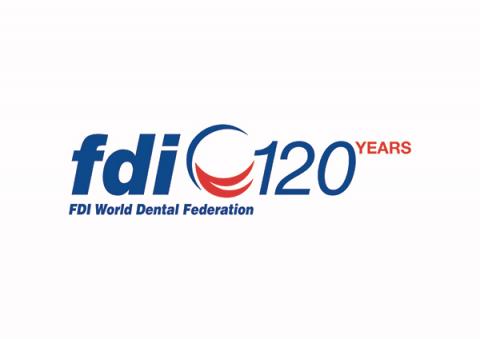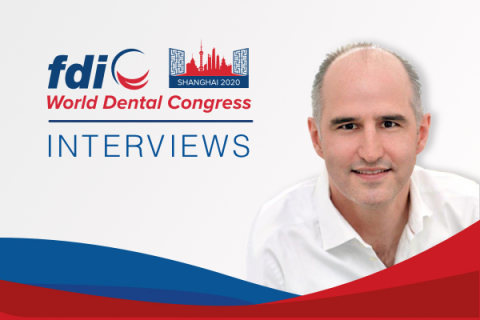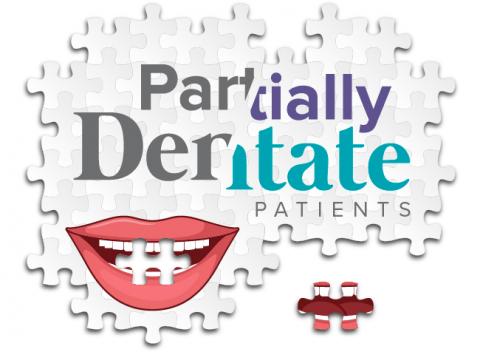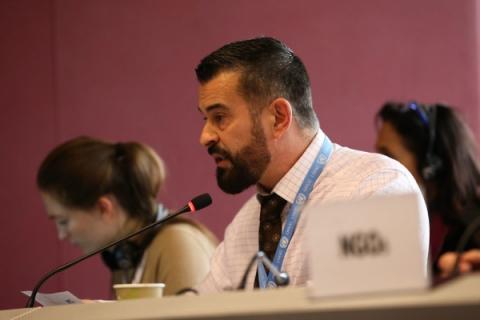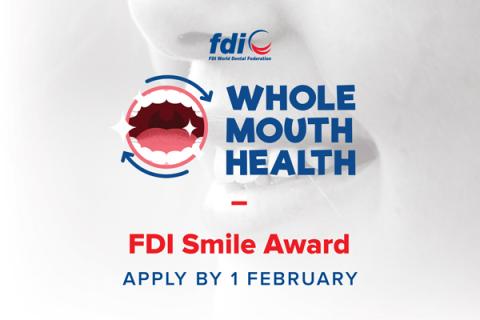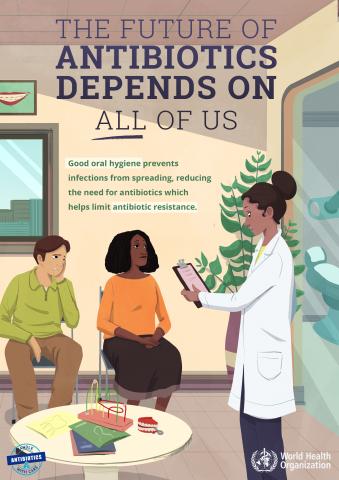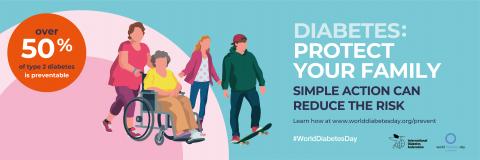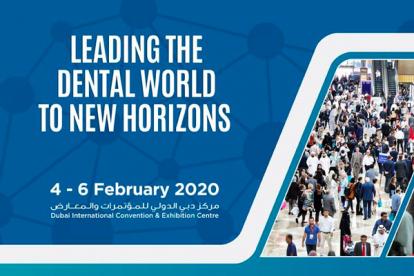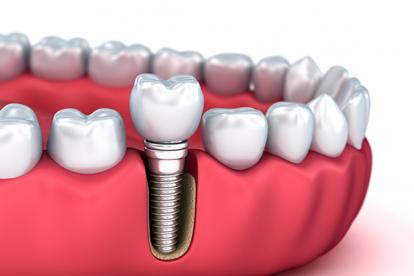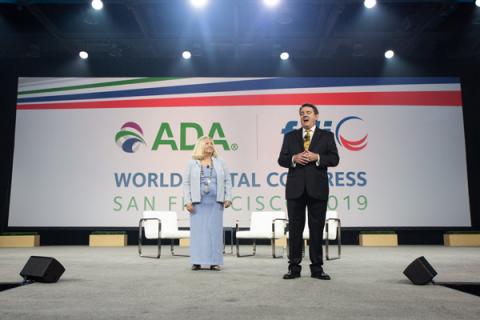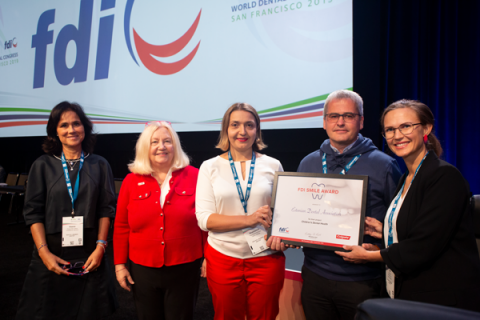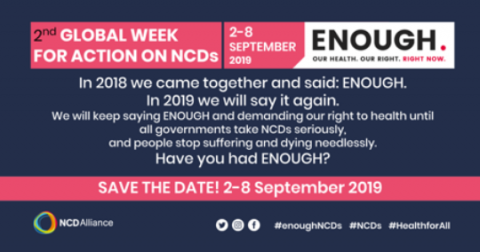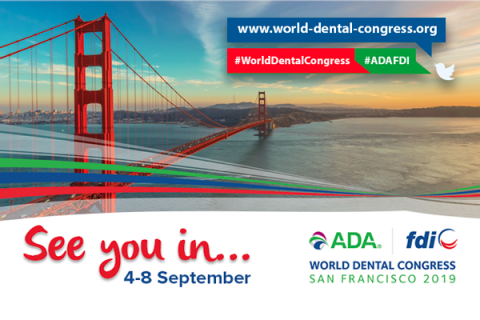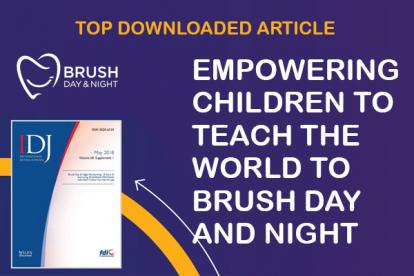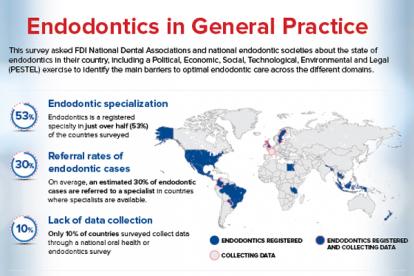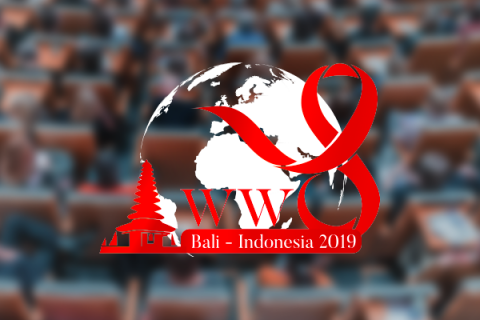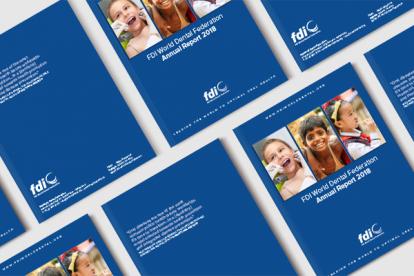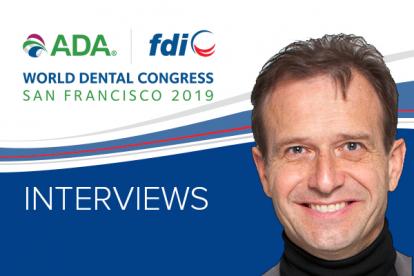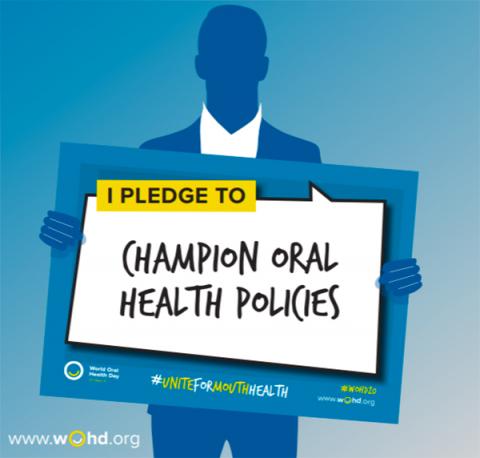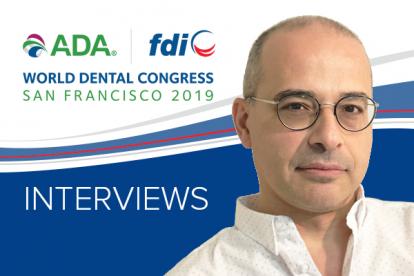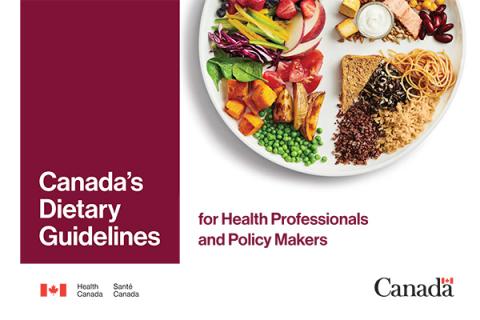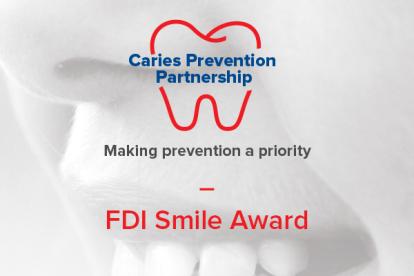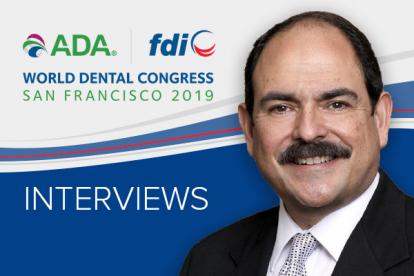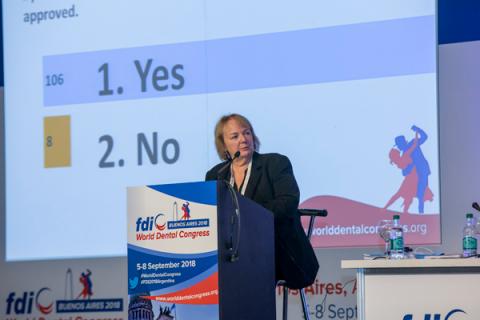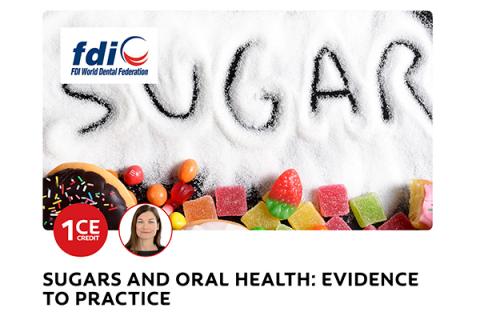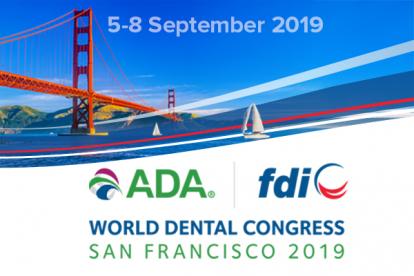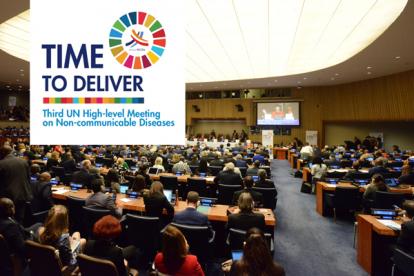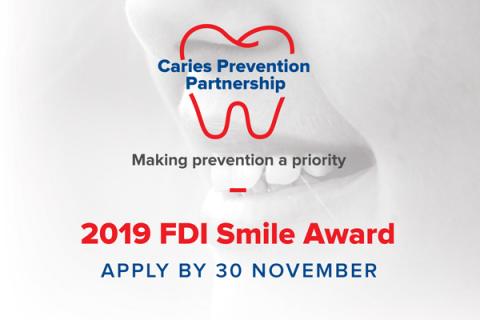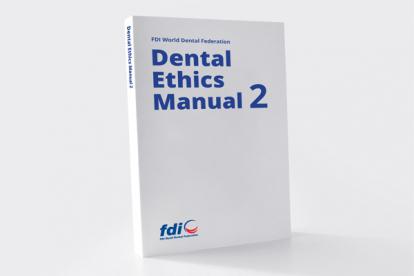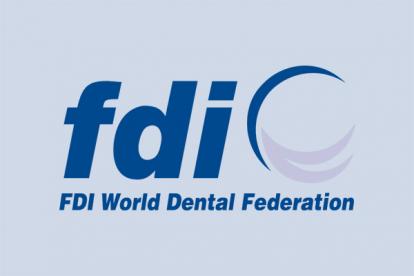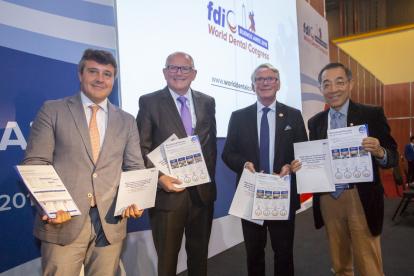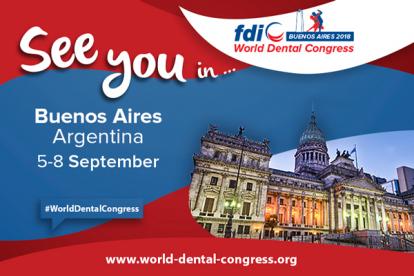Phase down of dental amalgam is the only equitable and feasible approach globally
FDI calls for evidence-based strategies to help in the implementation of the Minamata Convention on Mercury and the phase down of dental amalgam.
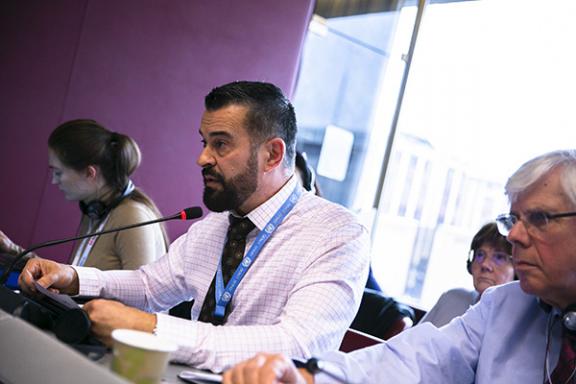
FDI Executive Director Enzo Bondioni (center) speaks at COP3, joined by IDM Ambassador Ms Pam Clark (right) and ISO/TC 106 Chair Prof. Dr Gottfried Schmalz (far right).
At its third meeting, the Conference of the Parties (COP) to the Minamata Convention on Mercury agreed on a number of action items to effectively implement the Minamata Convention and prepare for COP4 to be held in Nusa Dua, Bali, Indonesia, from 1 to 5 November 2021.
Parties and others were invited to provide information related to the availability, technical and economic feasibility of non-mercury alternatives to dental amalgam, as well as their health and environmental risks and benefits. This intersessional work is key in helping to prepare for COP4.
Since its adoption in 2013, FDI has supported the implementation of the Convention. FDI has focused its advocacy efforts on the convention provisions relating to prevention; promoting research and development of quality mercury-free materials for dental restoration; and best management practices for amalgam waste.
FDI submitted the following statement for the intersessional work related to dental amalgam, under item Information on non-mercury alternatives to dental amalgam.
FDI World Dental Federation Submission
Information on non-mercury alternatives to dental amalgam
FDI World Dental Federation (FDI) fully supports the United Nations Environment Programme’s (UNEP) Minamata Convention on Mercury, including its nine provisions on the phase down of use of dental amalgam defined in Annex A, Part II of Article 4.
FDI serves as the principal representative body for more than one million dentists worldwide through its membership, which comprises 200 national dental associations and specialist groups in over 130 countries.
The organization is in official relations with the World Health Organization (WHO) and, with its members, stands ready to support countries in the implementation of the phase down of dental amalgam according to the World Health Assembly Resolution adopted at the 67th World Health Assembly in 2014 (WHA67.11).
The Convention is an environmentally focused instrument. However, there are many articles in which Ministries of Health play a leading role in its implementation, and measures to phase down dental amalgam is one such example1.
To support Parties and UNEP in gathering information on non-mercury alternatives and planning strategies around the phase down of dental amalgam. FDI recommends the following:
1. Invest in disease prevention and health promotion
The Minamata Convention presents a unique opportunity for primary prevention of dental caries to be promoted as being the optimum strategy to phase down dental amalgam. Resources should, therefore, be invested in population-wide cost-effective public health measures2 and strategies to improve health literacy. This will help lessen the need for any restorative work and reduce the demand for dental amalgam.
2. Breakdown silos and work together with all relevant stakeholders to develop the most sustainable strategies to manage the phase down of dental amalgam
In line with WHA67.11 and as preparatory work for COP3, the WHO conducted a survey in October 2019 among Chief Dental Officers, senior advisors and academics in oral health at the Ministry of Health, and directors of WHO Collaborating Centres (Appendix 1). A total 79 participants from 71 countries and territories completed the survey. Worryingly, approximately half of the participants reported they had not been involved in meetings organized either by the Ministry of Environment or Ministry of Health to discuss the implementation of the Convention or the phase down in use of dental amalgam.
When gathering information on non-mercury alternatives and outlining strategies for the phase down of dental amalgam, Parties, specifically the Ministries of Environment, must work with their Ministries of Health, National Dental Associations and Chief Dental Officers (where they exist), to understand the challenges and the feasibility of any recommended approaches.
It is vital that these ministries’ Parties to the Convention engage the oral health community during the discussions, strategic planning, and delivery of activities to phase down the use of dental amalgam to ensure all views are considered.
Setting up a national coordination committee under the leadership of the Ministry of Environment and Ministry of Health could create an environment conducive to consensus building for the health sector.
3. Increase research into fully effective alternatives to dental amalgam and make evidence-based recommendations according to the latest science
A phase-down approach is the only equitable and feasible strategy that should be enforced at this time. According to WHO, phasing out dental amalgam without the required supporting evidence on alternatives, national situation assessments, and the involvement of key stakeholders could compromise the delivery of quality dental treatments and increase health inequalities in access to essential oral healthcare and therefore impact the achievement of Universal Health Coverage.
Increased research and development of quality mercury-free materials for dental restorations, including their potential environmental impact is needed. FDI advocates that all treatment decisions should be based on the best available scientific evidence, the best interests of the patient and the best clinical judgement by the practitioner while considering the integrity of the environment3.
FDI fully supports the joint submission from the International Association for Dental Research (IADR) and the American Dental Association4. Dental amalgam is the most affordable treatment option in many cases both in terms of cost of placement and how long it lasts.
FDI agrees that “By working together to promote research into fully effective alternatives to dental amalgam, the world community can assist in efforts to reduce reliance on mercury while still protecting the health of the public. In other words, the current approach to dental amalgam memorialized in the Minamata Convention offers the best chance to protect both the environment and the public.”
4. Ensure access to safe, effective and affordable alternative restorative materials
Dental amalgam has been used for over 150 years around the world as a safe, durable, and cost-effective material to repair tooth decay (dental caries). Although much progress has been made in developing alternative restorative materials, they are still not “technically and economically feasible” for many resource-limited settings. FDI agrees with the latest research update on alternative materials from the IADR4, which found that alternative restorative materials “… are not practical for all clinical settings or in settings that lack a reliable source of electricity or other necessary equipment …” and “… addressing deficiencies of alternatives to dental amalgam … require[s] continued investments in research to accelerate development of these products, move them from the lab to the market, and to increase their affordability”.
The phasing down of dental amalgam before the availability of safe, effective, and affordable alternatives, particularly in resource-limited settings, would negatively impact oral health from both an individual and population perspective. It is important to reiterate the need for further research, both private and public, to make available a quality mercury-free restorative material that is affordable, biocompatible, clinically effective, user-friendly, and environmentally sound.
5. Implement dental amalgam phase down strategies that are most appropriate to the national context
As highlighted by WHO, FDI recognizes that the phase down and potential phase out of dental amalgam is not a “one-size fits-all solution” for all countries and tailored strategies should be implemented at the country level based on specific needs and situations. However, substantial preliminary work is required at both global and national levels before moving towards a complete phase out of dental amalgam. Phasing out of dental amalgam without the required supporting evidence on alternatives could lead to quality dental treatments being compromised, an increase in the number of teeth extractions as access to appropriate treatment regimens are no longer available, specifically in low- and middle-income countries (LMICs), and a reduced quality of life for people.
FDI fully supports the WHO position in that efforts should focus on accelerating the phase down in use of dental amalgam through a comprehensive, stepwise, and inclusive process that considers a timescale for implementation according to national contexts. Phasing out dental amalgam in the short-term is seen as premature, particularly for LMICs with a high prevalence of untreated dental caries.
FDI advocates for the continued phase down of use of dental amalgam, but countries and dentists must be given access to safe, effective, and affordable alternative restorative materials as well as the appropriate training for their use. This will not become a reality in many countries, particularly in resource-limited settings, without sustainable funding, a greater emphasis on prevention, increased research on amalgam alternatives, and best management practices for amalgam waste.
> Download the full submission here
> Read more about the COP4 intersessional period here
Calls to action
FDI encourages all FDI members to familiarize themselves with the data being collected on the phase down of dental amalgam and the measures implemented at a country level and take the following actions.
Ensure your voice is heard: Connect with your Ministry of Health and where one exists your Chief Dental Officer and agree your country’s position. Share this with the focal point in your country to update them on what provisions have been implemented and to highlight any challenges dentists in your country face with implementing the phase down of dental amalgam, so that you help to shape your government’s position.
If your government has already submitted a position, make sure you read it and are aware of its content. If it does not reflect your experiences or address your specific challenges, contact your focal point to communicate your concerns and highlight any evidence you may have.
Find your focal point here.
Take action today so that you can help influence decisions that may impact your daily practice tomorrow.
References
1. World Health Organization. Strategic planning for implementation of the health-related articles of the Minamata Convention on Mercury. Geneva: World Health Organization; 2019. Available from: https://www.who.int/publications/i/item/strategic-planning-for-implement... [Accessed 13 July 2020].
2. World Health Organization. Tackling NCDs: 'best buys' and other recommended interventions for the prevention and control of noncommunicable diseases. Geneva: World Health Organization; 2019. Available from: https://apps.who.int/iris/handle/10665/259232 [Accessed 13 July 2020].
3. FDI World Dental Federation. Policy statement: Dental Amalgam Phase Down. Available from: https://www.fdiworlddental.org/resources/policy-statements/dental-amalga... [Accessed 13 July 2020].
4. ADA and IADR. Minamata Convention Conference of Parties 4 Statement. Available from: http://www.mercuryconvention.org/Portals/11/documents/meetings/COP4/subm... [Accessed 13 July 2020].

